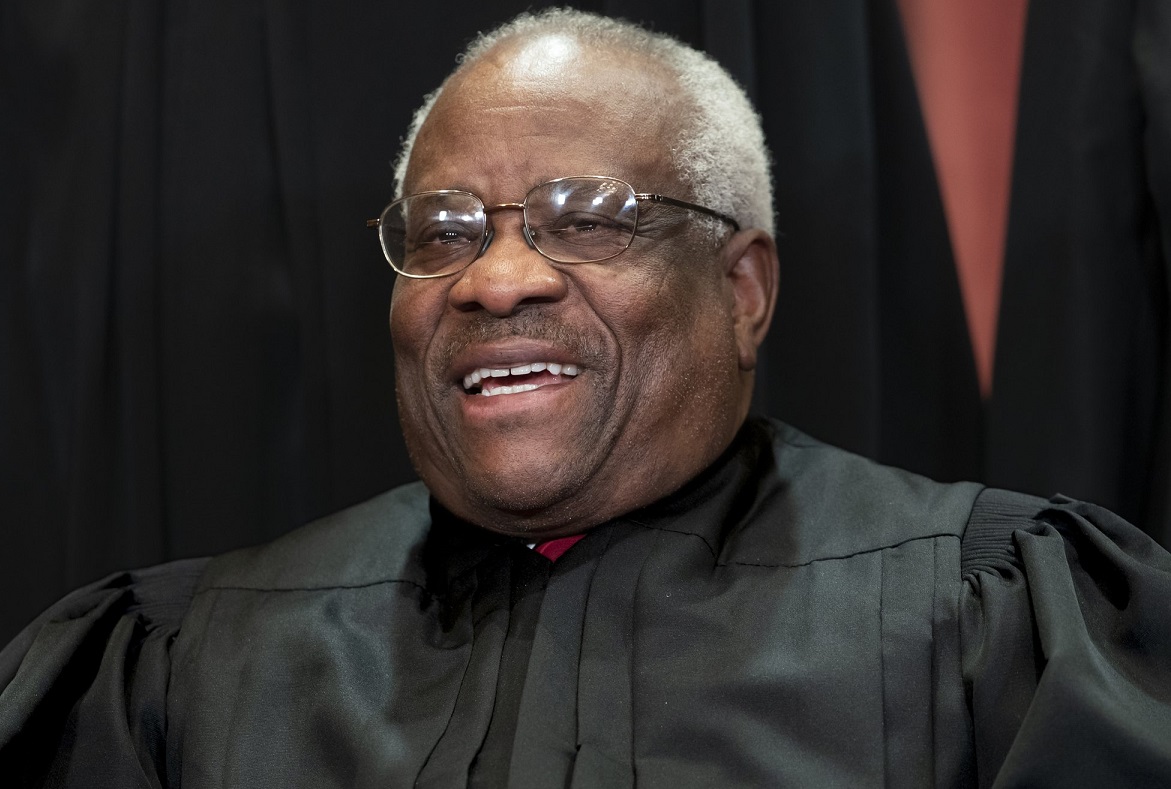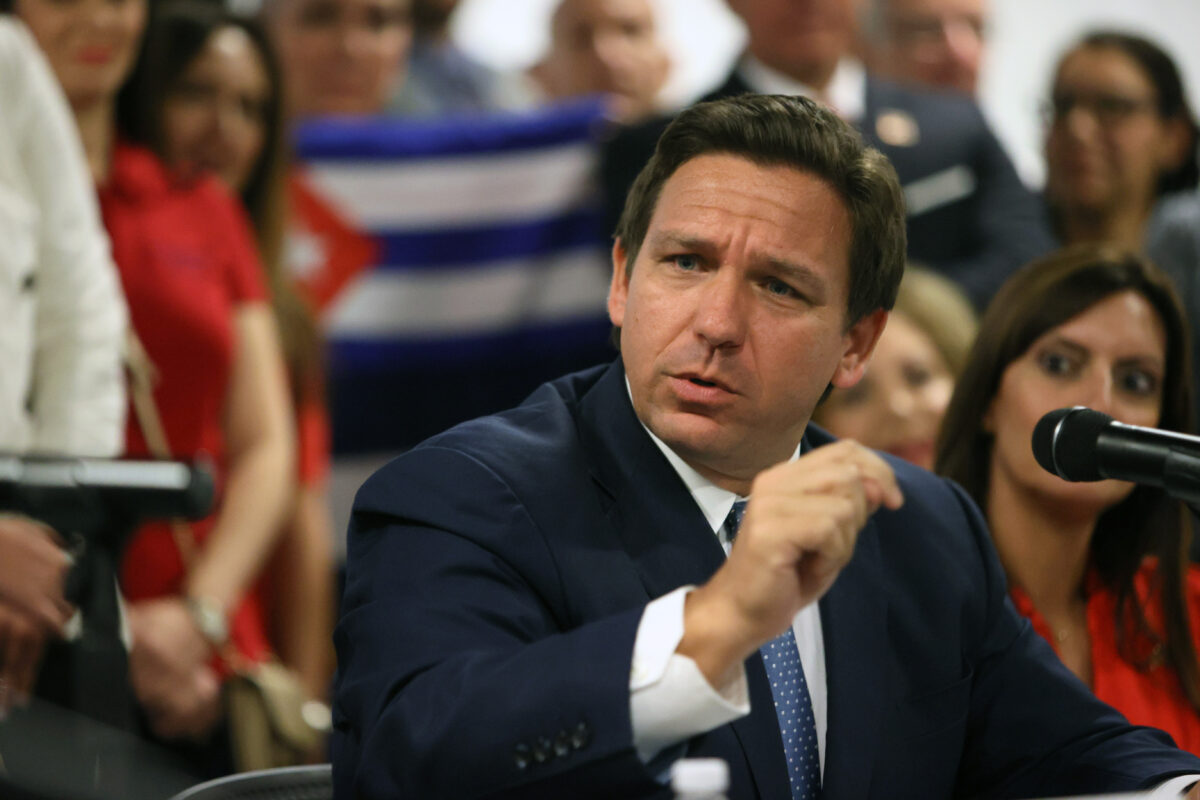By Matthew Vadum
The best way to fight social media censorship is to promote model state legislation all across the country that gives users the right to sue when a tech platform engages in discrimination, John Hinderaker, president of Minnesota’s Center for the American Experiment, told The Epoch Times in an exclusive interview.
In a July 30 column at the Power Line blog, Hinderaker contends that creating a private cause of action allowing users to sue when a social media platform practices viewpoint discrimination, instead of diving deep into the minutiae of Section 230 of the federal Communications Decency Act (CDA) as many conservatives favor, could help restore free speech in social media.
Section 230 of the 1996 statute shields internet service providers and other online entities from being held liable for what others say and do, creating “a broad protection that has allowed innovation and free speech online to flourish,” according to the Electronic Frontier Foundation.

Hinderaker writes that “the basic idea” behind his right-to-sue model legislation “is to ban discrimination in the moderation of content on social media sites on the basis of race, sex, religion, or political orientation.”
“Our freedoms are under threat as they have not been in a very long time. The question is, what to do about it. Private action is appropriate; we should support non-leftist alternatives to platforms like Facebook and Twitter, for example. But that is not going to be good enough,” Hinderaker writes.
“These tech companies cannot afford to keep getting sued, particularly if some of the major states like Texas and Florida pass the right kind of legislation,” Hinderaker told The Epoch Times in the interview.
“I really think it’s the one thing that could cause the tech companies to just give it up.”
Self-Executing
The beauty of this state legislation is that it is “self-executing,” Hinderaker said, adding such model legislation would provide for statutory minimum damages and allow the recovery of attorneys’ fees.
By “self-executing,” he said he meant “enforcement does not require any government action, and it is properly incentivized.”
“You don’t have to wait for an attorney general or someone like that to get around to enforcing the law,” Hinderaker said. “If somebody thinks he’s been discriminated against, he can just sue. And if he’s got a plausible claim, he’s going to be able to find a lawyer because you’ve got statutory damages plus attorneys’ fees. So having passed the law, you can sit back and let it work.”
Anti-discrimination laws that cover employment, public accommodations, housing, and other areas are already well-established in this country, he said. By taking the anti-discrimination route, “which is what I think is the most promising, you import the pretty well-developed principles of anti-discrimination law that have been applied in other contexts.”
Applying anti-discrimination law in a new venue “is not going to be susceptible to some of the First Amendment arguments and other kinds of arguments that the tech companies will try to throw up,” he said.
The prospect of left-leaning social media platforms arguing a case before jurors in a conservative, Republican-red state such as South Dakota or Arkansas “would inspire fear in their hearts.” Such a thing would “terrify” Silicon Valley companies as they “imagine going in front of a South Dakota jury to try a case where it’s alleged they discriminated against a conservative.”
Platforms have punished or banned users for supposedly advocating violence when they have done no such thing, Hinderaker said.
“And you sue them and they say ‘we did it because you were advocating violence.’ And you say, ‘well, let’s see what I said in my tweet was X, not in fact advocating violence.’ So then the question is, how did you treat other people who tweeted things that were similar or worse? How did you treat the woman who held up the [simulated] severed head of Donald Trump or the 37,000 people who tweeted the hashtag, #RapeMelania?”
“So if you could show inconsistent treatment … then you could argue that their stated ground for suspending your account or moderating you in some way, was pretextual and in fact was based on one of the prohibited kinds of discrimination,” he said.
First Amendment Applicable
In his column, Hinderaker scoffs at the idea that censorship by Silicon Valley giants, which suppress facts and opinions that deviate from Democratic Party orthodoxy, “is beyond remedy because they are private companies is ridiculous.”
“When they cut off communications at the behest of the government, they are state actors subject to the First Amendment,” he writes, accusing Twitter, Facebook, and Amazon of “reprising the contemptible role played by Pravda, Tass, FARS, Granma, Xinhua News and other state-run or state-dominated organs of censorship in totalitarian countries.”
Supreme Court Justice Clarence Thomas wrote something similar in a decision earlier this year, saying the day when privately-owned social media platforms become subject to the First Amendment may be approaching.
In a concurring opinion in Biden v. Knight First Amendment Institute, Thomas wrote that today’s “digital platforms provide avenues for historically unprecedented amounts of speech, including speech by government actors … [as well as] concentrated control of so much speech in the hands of a few private parties. We will soon have no choice but to address how our legal doctrines apply to highly concentrated, privately owned information infrastructure such as digital platforms.”
Although a private entity normally is not constrained by the First Amendment, “it is if the government coerces or induces it to take action the government itself would not be permitted to do, such as censor expression of a lawful viewpoint,” Thomas wrote.

“The government cannot accomplish through threats of adverse government action what the Constitution prohibits it from doing directly. … Under this doctrine, plaintiffs might have colorable claims against a digital platform if it took adverse action against them in response to government threats.”
Left-wing politicians have been urging Twitter, Facebook, and other platforms to censor content of which they don’t approve. Last month, President Joe Biden himself accused social media platforms of “killing people” by allowing content opposing vaccinations against the CCP Virus that causes the disease COVID-19.
“I mean, they’re really, look, the only pandemic we have is among the unvaccinated, and that’s—they’re killing people,” Biden claimed without providing evidence.
White House Press Secretary Jen Psaki has acknowledged the Biden administration is collaborating with social media platforms to censor content it opposes.
The administration is “regularly” working to make sure social media platforms “are aware of the latest narratives dangerous to public health … We work to engage with them to better understand the enforcement of social media platform policy.”
Psaki said the White House wants to ban a dozen anti-vaccine websites that she claims are spreading misinformation, such as one that asserts that coronavirus vaccines cause infertility.
“We’re dealing with a life or death issue here and so everybody has a role to play in making sure there’s accurate information,” she said. “They’re a private sector company,” Psaki said, referring to Facebook. “They’re going to make decisions about additional steps they can take.”
Congressional Action Unlikely
However, for the time being at least there is little point in acting federally because Democrats, who are aligned with powerful Silicon Valley interests, control both the U.S. House of Representatives and the U.S. Senate, Hinderaker said in the interview.
“In the foreseeable future, there’s nothing that’s going to pass in Congress,” he said.
While the Communications Decency Act is important, it isn’t the formidable obstacle some make it out to be, according to Hinderaker.
“The joke is that if an Amazon Prime truck rear-ends a vehicle on the highway, and they get sued, their first defense is section 230 of the CDA. There’s this fantasy that that section protects them against just everything, any kind of liability. I don’t understand how you can read that section that and hold that view. It clearly does not authorize discrimination, that’s for sure. … But in Washington, people are so tied up in knots – there’s all these proposals to repeal or revise section 230 … like that’s the holy grail.”
“Well, it’s not,” he said. “One, it isn’t going to happen, and two, it just doesn’t get to the point.”
Taking action at the state level makes more sense because free-speech advocates control around 30 states, he said.
Legislation targeting social media censorship has been introduced in at least 31 state legislatures, though it is unclear how many of the draft laws incorporate Hinderaker’s recommended right-to-sue provision.
The states where bills have been introduced are: Alabama; Arizona; Arkansas; Florida; Hawaii; Idaho; Indiana; Iowa; Kansas; Kentucky; Louisiana; Maine; Michigan; Minnesota; Mississippi; Missouri; Montana; Nebraska; New Hampshire; New Jersey; North Carolina; North Dakota; Oklahoma; Pennsylvania; Rhode Island; South Carolina; South Dakota; Texas; Utah; West Virginia; Wisconsin; and Wyoming.
The website of the Illinois-based Heartland Institute reported in April that the group was “working on” 59 pieces of legislation in various states taking aim at social media censorship. Heartland supports the right-to-sue approach.
“Allowing a private cause of action for social media users who have been silenced for expressing reasonable political or religious views is perhaps the best tool policymakers can use to encourage more free speech on the internet and to assure citizens that robust public debates are still sacrosanct in the United States,” according to the site.
Hinderaker wrote the model legislation that was introduced in the Minnesota legislature. The bill died earlier this year but he said it will be reintroduced when the next legislative session begins in the new year. Columbia Law School professor Phil Hamburger has also drafted an impressive model bill that incorporates the anti-discrimination element and other ideas, he added.
Florida’s Ban on Censorship
“And I’m going to be in touch with people in other states, encouraging them to do something, something similar and hopefully over the next couple of years, we’ll get some real action.”
Florida Gov. Ron DeSantis, a Republican, signed Senate Bill 7072, which outlawed de-platforming political candidates, into law May 24.
The law allows Floridians to sue for monetary damages and forbids platforms from banning candidates for public office in the state, imposing fines up to $250,000 per day. The measure authorizes the state attorney general to take action and bans offending companies from contracting with any public entity.
But an injunction was issued against the Florida law June 30 by U.S. District Judge Robert Hinkle, a Clinton appointee. The order stated that it “preliminarily enjoins enforcement of the parts of the legislation that are preempted or violate the First Amendment.”

The Florida statute “got tangled up” in various issues, Hinderaker said.
“One of them was, they can’t suspend candidates during campaigns … or if they do certain things, that counts as an in-kind contribution to a candidate,” he said.
Having the statute ban censorship by social media platforms isn’t the way to go, he said.
“As soon as you start talking about censorship, you’re running smack into the First Amendment, and the fact that, in general, private companies can censor.”
The virtue of Hinderaker’s legislation is it doesn’t prevent the platforms from moderating content to improve the user experience by doing things such as banning terrorist content or child pornography, he said.
“All I’m saying is that in the course of moderating, you cannot engage” in discrimination. “That’s it—you can moderate to your heart’s content.”
Antitrust
Antitrust litigation might also force social media platforms to change their ways, said Hinderaker, an attorney who practiced antitrust law for decades.
Antitrust law is based “entirely” or “almost entirely” on economics, he said, adding that the law is “all about pricing and monopolization” because it has been developed by economists at least as much as by lawyers. The law is premised on the assumption that the only reason someone would want to be a monopolist is to raise prices above a competitive level, he said.
“There’s just no body of law about monopolist misbehavior that’s not economic, and so it would be open to the U.S. Supreme Court to hold that under the Sherman Act there are several reasons why monopolies can be bad,” and one reason might be because they “use their power to unduly influence elections.”
“I would love to see the Supreme Court, one of these days, take up that issue.”

